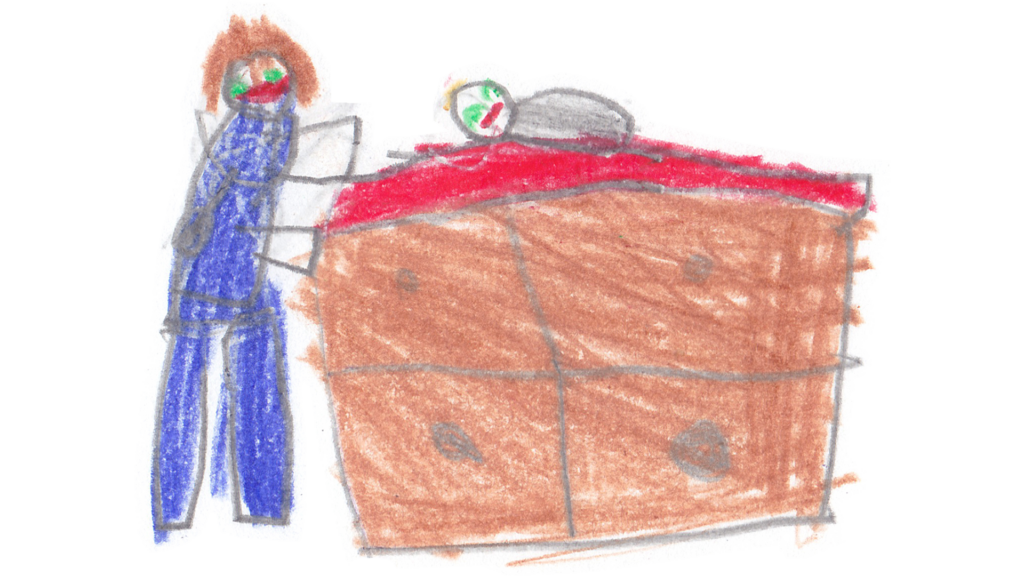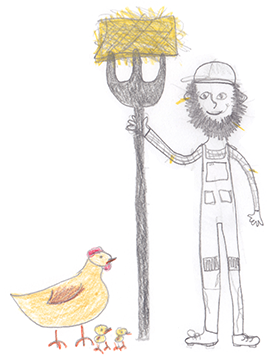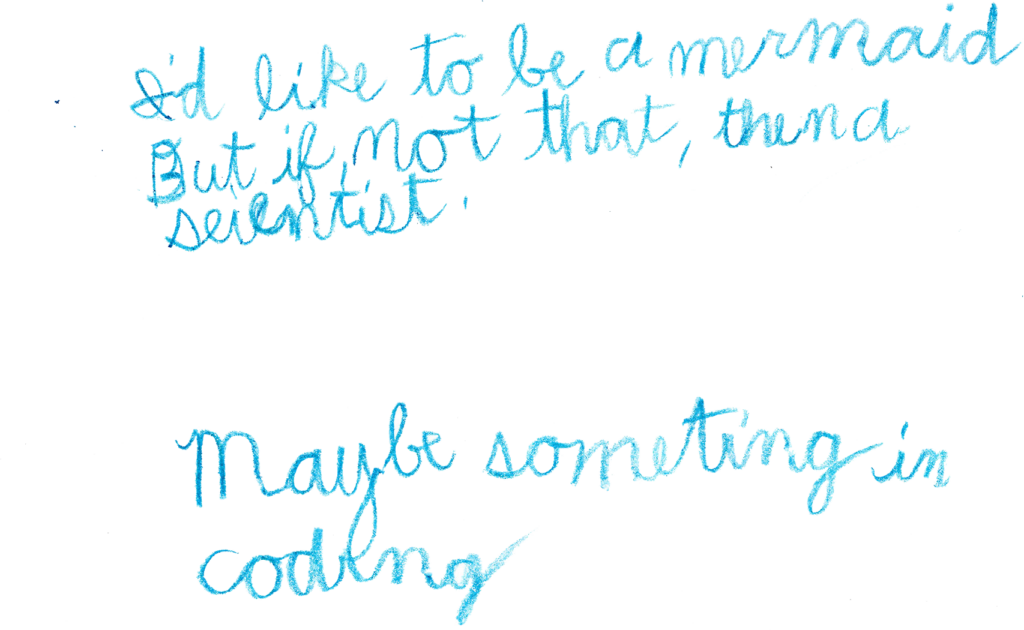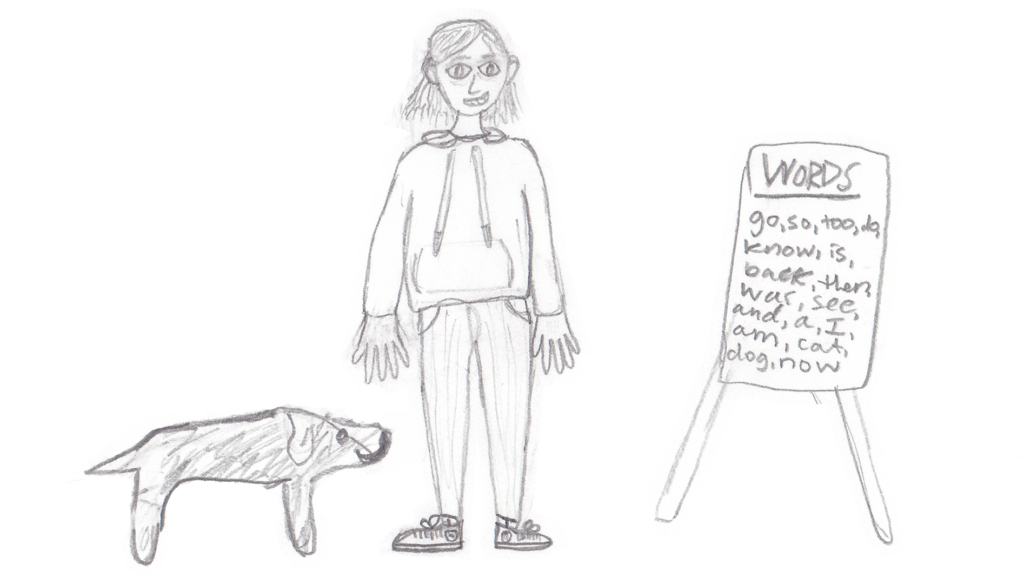When I was a first-grade teacher in the early aughts, I would occasionally ask my students what they wanted to be when they grew up. Sandwiched between a future ‘police officer’ and a someday ‘doctor,’ one boy stated his calling with gusto and a twinkle in his eye: “I want to be a bond trader.”
While the question of future profession has historically been a very common adult-child exchange, I’m starting to think it’s gone the way of the dodo bird. As a mother of five children, I have noticed that grown-ups rarely — if ever — engage my kids on the topic. If I were to hypothesize as to why that is, I would probably mention something about screens squelching conversations of this sort, and then something about the rapidly changing workforce.
How can a child look very far ahead with the technology evolving at such a clip? It’s possible the professions these children will one day occupy do not even exist (yet). Even still, the question feels like a rite of passage for a kid. It is a child’s privilege to dream up an answer that fits his or her personality, keeping it in the ole back pocket should a curious teacher or friend of their mother’s inquire about just such a thing.
Had a group of children been asked this same question 200 years ago in colonial America, their answers would have likely reflected the social norms of that era — just as they do in any era. A little boy’s list might have included jobs like ice dealer, wigmaker, apothecary, printer, chimney sweep, tavern keeper, saddler, drover, hemp dresser, or even matchmaker.
For girls, options were more limited. Most girls aimed to become wives and mothers, anticipating working in the home and on the family farm. Their days were made up of harvesting the kitchen garden, caring for the barnyard animals, preserving and canning fruits and vegetables, and churning butter. They had indoor work, too — cooking, laundry, and housework. Some girls might have worked as school mistresses or midwives.

In the grand scheme of human history, 200 years is not long. However, American life has changed so dramatically in this time that it would be nearly unrecognizable to people of the colonial time. For the sake of curious comparison, I recently asked a gaggle of modern children how they might answer the age-old question, “What do you want to be when you grow up?”
A preschool girl with pigtails wanted to be a “baby doctor” and two of her classmates liked the idea of being “pet doctors.” Ellie, a spunky 10-year-old blonde girl with a mother who is a fertility doctor said she would like to be a pulmonologist, “to save lives, and also because pulmonologists get to work with cool stuff.” Her younger brother said, “I want to be a farmer, because I just want to. I get to plant the seeds.”
From there, the path parallel with tradition diverged. Lucas, a fourth-grade boy who entertained my question while watching his sister’s soccer game said, “I don’t really know. Maybe something in coding.” A preschool boy offered “lifeguard” as his plan, which works well in conjunction with the goals of 5-year-old Paul, who has a real sense of adventure and wants to be an underwater diver or an explorer.

A precious preschool girl not terribly far from her diaper era said she is looking forward to her job as a “super villain,” which will be interesting because her classmate one desk pod over hopes to be Elsa from Frozen. It will surprise no one that Taylor Swift found her way onto the list as a future profession (she seems to make it to nearly every list these days), and one soft-spoken girl was admiringly flexible with her plans: “I’d like to be a mermaid,” she said. “But if not that, then a scientist.”
The young people of today are not fools. They’ve endured enough school shooting drills to know things are not as they should be. But when they consider the world they were born into, take into account the God-given passions of their hearts, and set out to find that sweet spot where the two intersect, they get a tiny taste of what it’s like to bring the kingdom of God to bear here on earth, just as it is in heaven.
The middle school bunch, ages 10-13, offered their own set of answers to my question. They are decidedly set on keeping humanity healthy, beautiful, and adventuresome. Aesthetician, travel agent, and food critic all made the conversation. In addition, therapists will seemingly abound two decades from now with occupational therapist, physical therapist, regular ole therapist, and a speech therapist with a support dog popping up as promising options for the tweens. This group leaned hard into the medical field and they all-but said to the younger set, “We’ll take your pulmonologist, and we’ll raise you a pediatrician, a pediatric oncologist, and a NICU nurse.”

In an effort to reinstate a worthy tradition that seems to have evaporated without so much as a nod, I’d like to encourage thoughtful adults to ask the children in their lives this very question:
What do you want to be when you grow up?

We were kids once. We know what it feels like to dream. As a matter of fact, it could be fun to meet them in the middle. As they look forward, we can look back, recalling our own answers from decades ago, when the men and women a generation older posed the same question for us.
As one generational story overlaps with another in this small, seemingly insignificant exchange, we can listen, encourage, and testify that, indeed, God is good, and his steadfast love endures forever. Whether we are chimney sweeps, bond traders, or tech pioneers, that’s the truth we need buried deep in our back pockets, and even deeper in our hearts.





